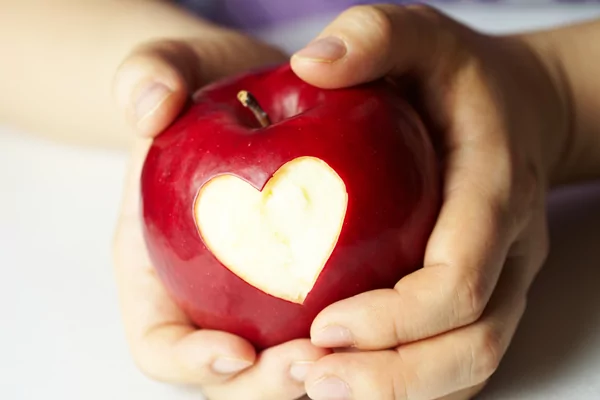Even though the weather in Belgium may not look like it, it's summer and vacation time for many. When I share with my colleagues about our meditation practice, we seem to have one thing in common: it is difficult to keep up our meditation practice during the long summer break. The change of rhythm and scenery is often a deal breaker when it comes to keeping up a routine. Since I normally meditate in the morning before everyone else is up, I find it difficult to keep this rhythm during vacation when we are on holidays and get up at the same time. The rest of the day is filled with joint activities and therefore it is often difficult to find a moment to meditate on my own.
Yet this does not mean that it is not possible to practice mindfulness. It is just different than during the rest of the year. And it can be an opportunity to be flexible in your mindfulness practice and to include some new elements.
Here are some ideas that help me keep my mindfulness practice alive during holiday periods:
1. Savour what is nourishing
For many it is easier to be mindful during vacation since much is new; a new location, different activities, spending more time outdoors, new culinary experiences – all these are opportunities to be present. One of the key attitudes in mindfulness is practising a beginners' mind – approaching experiences as if it was for a first time. Try to slow down, cultivate a sense of wonder and fully savour what is nourishing.
Whenever there is something enjoyable, take some extra seconds to take it in. According to neuroscientist Rick Hanson staying present with an enjoyable experience for 20 seconds can already change your brain towards greater resilience, happiness, and wellbeing.
2. Meditate outside
Find a quiet place where people are unlikely to interrupt you: a park, a beach, a yard. Focus on your senses: the smell of the fresh air, the sounds of nature, the touch of the sun or wind on your skin. Probably you won’t be as focused as when you’re in your usual spot, but that’s fine. Don’t worry if your formal practice only lasts a few minutes. Maybe you could repeat it later in the day? You can also practice walking meditation. I love doing this on the beach – walking slowly up and down the beach or in the grass, feeling the contact of your foot soles with the ground. Enjoy the warmth, the fresh air, the sensations of touch and the simple act of walking.
3. Practice mindful eating
Vacation time is a wonderful occasion to practice mindful eating. When you are in a different location with different tastes and flavours, it is easier to activate your beginners' mind and to slow down and truly explore and enjoy a new dish. Often when we are eating in our day-to-day life, we are doing something else at the same time. Because we're working, driving, reading, watching television, or fiddling with an electronic device, we're not fully aware of what we're eating. But this makes us miss out on so many things. We don’t truly savour our meal, we might not notice when we are full, and we might not chew enough.
Mindful eating means being fully attentive to your food – as you buy, prepare, serve, and consume it.
Bring all your senses to the meal. When you're cooking, serving, and eating your food, be attentive to the colours, texture, aroma, and even the sounds different foods make as you prepare and eat them. As you chew your food, try identifying all the ingredients, especially seasonings. Take small bites, eat slowly and chew thoroughly. Appreciate your food by silently expressing your gratitude for the opportunity to enjoy delicious food and the companions you're enjoying it with. Feel the aftereffects, the taste in your mouth and the sensation of having enough.
4. Increase your presence throughout the day
See what it’s like to cultivate presence when you’re talking with friends or family, going for a run, or visiting something. You can do the same things at these times that you do when you’re meditating: notice body sensations, feelings and thoughts as they arise, aware that you don’t have to believe every thought that is popping into your mind.
These attitudes can be specifically helpful in moments where things are not going as expected in your holidays: A tourist attraction or the food is not as nice as you thought it would be, the kids are still fighting with each other, maybe it doesn’t stop raining,… Noticing if there is a tendency to 'really want' holidays to be perfect, especially after a draining period in which we were looking so much forward to leaving. Can you remain present and calm when things don't work out on holidays as you had hoped for?
After all, this is why we practice mindfulness. It’s nice to be calm and focused when you’re meditating, but it’s even more important to be steady in the middle of a stressful situation. As meditation teacher Sharon Salzberg puts it; it’s not about what happens to you but how you relate to it.
This comes with practising mindfulness many times a day, rather than just meditating once a day. So while being on the beach, noticing the sounds, the sights, the warmth, the thoughts and feelings. Noticing the pleasantness. When stuck in traffic, noticing the sounds, the sights, the rising of your blood pressure, the feelings, and thoughts. Noticing the unpleasantness. Noticing how things are continuously changing and noticing how you react to them.
Wishing you a beautiful and nourishing vacation!






